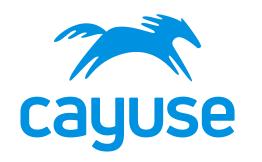Transition Plan for Scenario 2: Before submitting an amendment in Cayuse, you must first backfill your Cayuse protocol shell. A protocol shell has been created for you in Cayuse, accessible only by the PI of the protocol.
The backfilled protocol shell must be reviewed and approved before you can submit an amendment, with the exception of personnel additions or removals being allowed in the backfill. The backfilling step is essential, protocol shells are incomplete in terms applicable sections and content. The shell must be fully backfilled with all the protocol's components to ensure that the elements of the amendment can be properly incorporated.
This review can occur outside of the IACUC convened meeting, so please allow 3 business days for the review process. Once the backfill is approved, you can create and submit an amendment for review. Please be sure to consult with the IACUC Meeting Schedule (opens in a new window), your amendment will need to be reviewed at a convened meeting. Be sure to submit your amendment before the submission deadline for the meeting you are targeting.
For detailed instructions on how to backfill a protocol shell, refer to the guide linked below. Once your backfilled submission is reviewed and approved, you can proceed with submitting an amendment. Please refer to the guide linked below for further information.
Step 1. How to Backfill a Protocol Shell (opens in a new window)
Step 2. How to Create an Amendment (opens in a new window)
